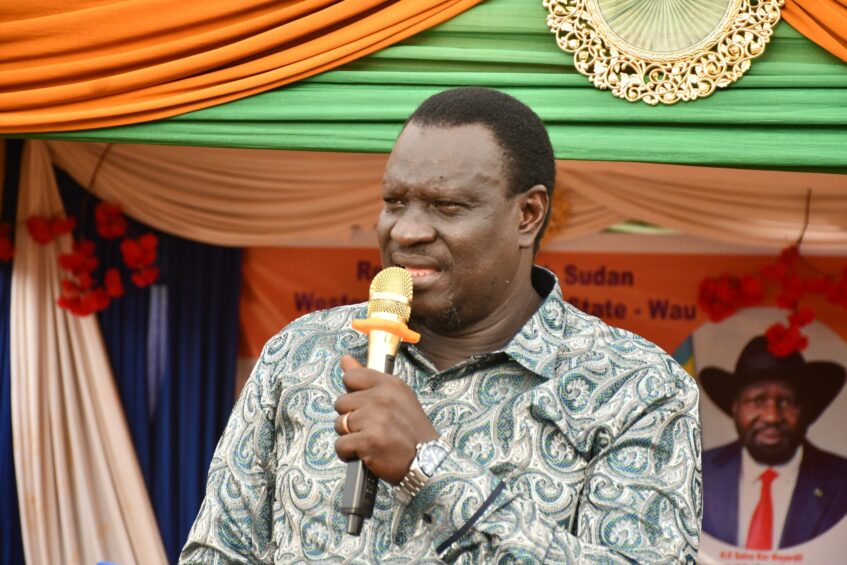
Author: Emmanuel J. Akile | Published: 1 hour ago
Zacharia Joseph Garang, Deputy Governor of Western Bahr el Ghazal – courtesy
The Deputy Governor of Western Bahr el Ghazal has appealed to the national government to provide agricultural inputs to support farmers and improve food production in the state.
Zacharia Joseph Garang said giving farmers access to tools, fuel, and equipment is key to increasing crop yields and enhancing food security in the region.
He made the call on Wednesday in Wau ahead of this year’s World Food Day, which is commemorated globally on October 16.
“We, as the government of Western Bahr el Ghazal state, to help develop the agriculture sector, call upon the national ministry of agriculture and food security to support us with agricultural inputs. The ministry should provide us with more agricultural inputs, such as machines and fuel, among others. This will help farmers to produce more food,” he said.
Garang also urged farmers in the state to take agriculture seriously, describing it as the “engine of the economy” and a key driver of development.
He said the state government has taken steps to secure farming areas, encouraging communities to cultivate more land and supply markets with locally grown food.
The deputy governor stressed that increased investment and capital are needed to scale up agricultural activities across Western Bahr el Ghazal.
Meanwhile, farmers in many parts of the country continue to face several challenges, including lack of government support, high fuel costs, poor pest control systems, and unstable market access.
In April 2025, the Economic Cluster approved SSP 62 billion to boost agricultural activities ahead of the planting season.
Following this, Deputy Minister of Agriculture and Food Security Lily Albino Akol instructed all state governors and chief administrators to allocate 250,000 hectares of land for farming.
Although South Sudan has millions of hectares of fertile land and access to rivers and water bodies, it continues to import most of its basic food items, such as maize flour, onions, cooking oil, beans, dairy products, and tomatoes, from neighbouring countries.
Agricultural output in the country declined sharply in 2016 due to widespread conflict, which forced thousands of farmers to flee their homes.
As the country marks World Food Day, leaders like Garang are calling for renewed investment and support for the farming sector to make South Sudan food secure.








